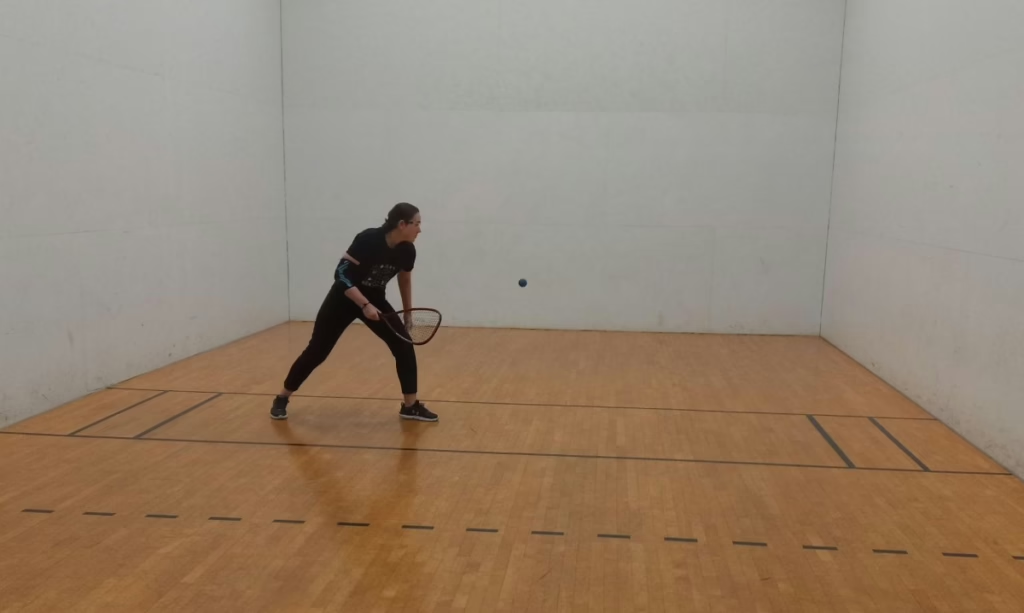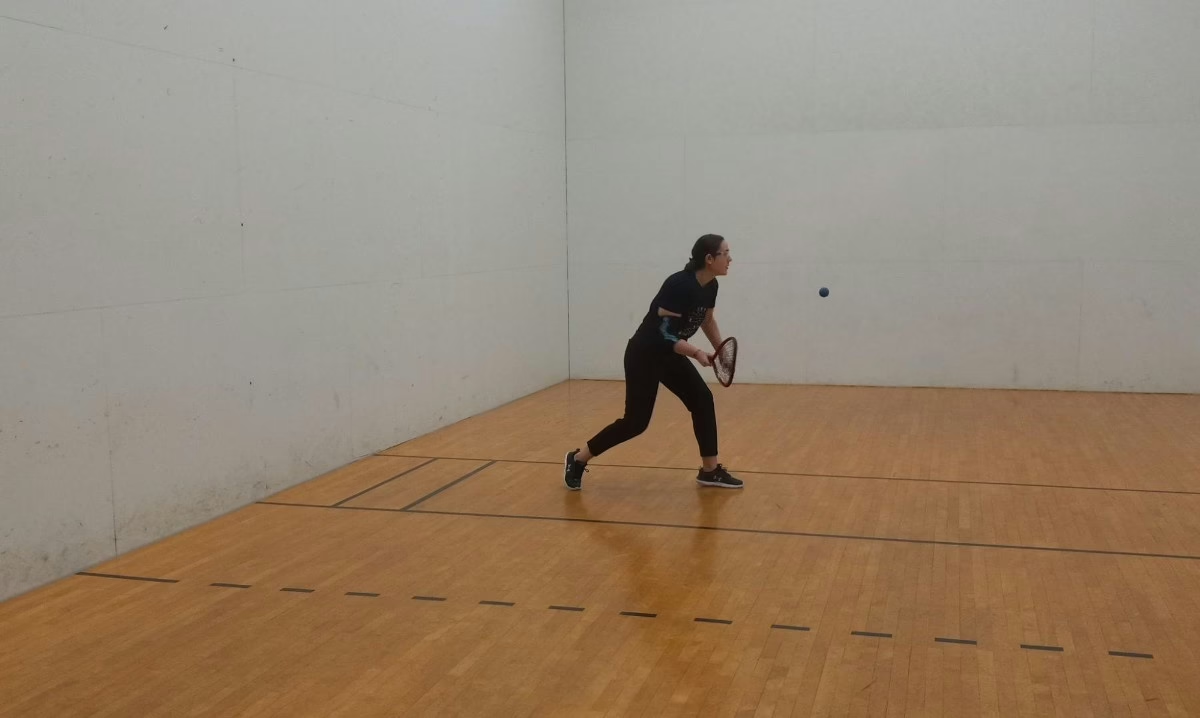Racquetball is a game similar to handball but played with rackets. The game is played on a four-walled court with a short-handled racket and a ball that is larger than that used in handball. Over the years, racquetball has witnessed a major decline in popularity and has gone from a popular mainstream sport to a sport hardly anyone plays or even knows about. However, every sport plays a role in people’s lives, so let’s look into what Cassandra McGuire, a racquetball player, thinks of the game.
Cassandra is part of the Seattle Central College’s staff, specifically the executive assistant to the president. Fitness plays a vital role in her life. Racquetball is her main physical activity, which has increased her general fitness, so she has recently added three home workout days using YouTube HIIT and yoga videos.
For Cassandra, racquetball is a fun way to run around without worrying about rainy days. It emphasizes short sprints, and to play well–and avoid injury–you need to have good back-upper body strength. The posture for serving is also a good core workout, as you need a full-body explosive movement to serve well. “Before racquetball, I never enjoyed working out. I was always miserable no matter what I did – P.E. and later weightlifting and running. Racquetball feels like a game first and a workout second. Now that I play regularly, I find I also enjoy working out in other ways, so I credit racquetball with teaching my body how to enjoy working out and giving me the gift of health,” claims Cassandra.

Many people have a misconception that racquetball is dangerous or overly aggressive. In the 1990s and early 2000s, its depiction in media was usually a metaphor for male aggression or risk-taking. A good example of this is this clip from “Along Came Polly,” in which the (timid) protagonist plays a racquetball game against his adventurous client.
“While this clip is a little funny, the actual game isn’t like this. You can run into a wall or dive for a ball strategically, but it’s not required. There is a risk from the ball (so you should always wear eye protection–available at the MAC!). Most professional games are a little boring because most points are made on impossible-to-hit serves so you just watch people alternate serving instead of rallying like tennis. I did get hit by the ball in the eye once when I first started playing but I started wearing the glasses and hardly ever get hit by the ball anymore,” says Cassandra.
When asked why she started playing racquetball Cassandra shares, “I used to work in Student Leadership and always loved the MAC (and its awesome crew–shoutout to Paul!) but never went in much. I don’t remember if my husband or I suggested racquetball but once we tried it, we were hooked!”
Racquetball is not a popular sport anymore, and it’s hard to find courts. The MAC has one of the only racquetball courts in Seattle. The only other one Cassandra knows of is the Washington Athletic Club, which is a members-only “country club,” not a public gym. “I have watched some professional players on YouTube (there are a couple of Open Tournaments in the US). But mostly I enjoy playing the game. So much so I’m planning on trying to find courts wherever I travel such as at the end of May when I’ll be in Portland,” says Cassandra.
This sport is what paved Cassandra’s way into fitness and introduced her to a sport she has grown to love. However, it is sad to see the decline in popularity of such a promising and wonderful sport that has a variety of benefits.

Vrindha, an international student from India, is fueled by her fervent love for diverse art forms such as dance, drama, music and theatre. Eager to immerse herself in new experiences and broaden her horizons, she sees her involvement with the Collegian as a gateway to both sharing her passions and delving into new realms of knowledge.







Be First to Comment